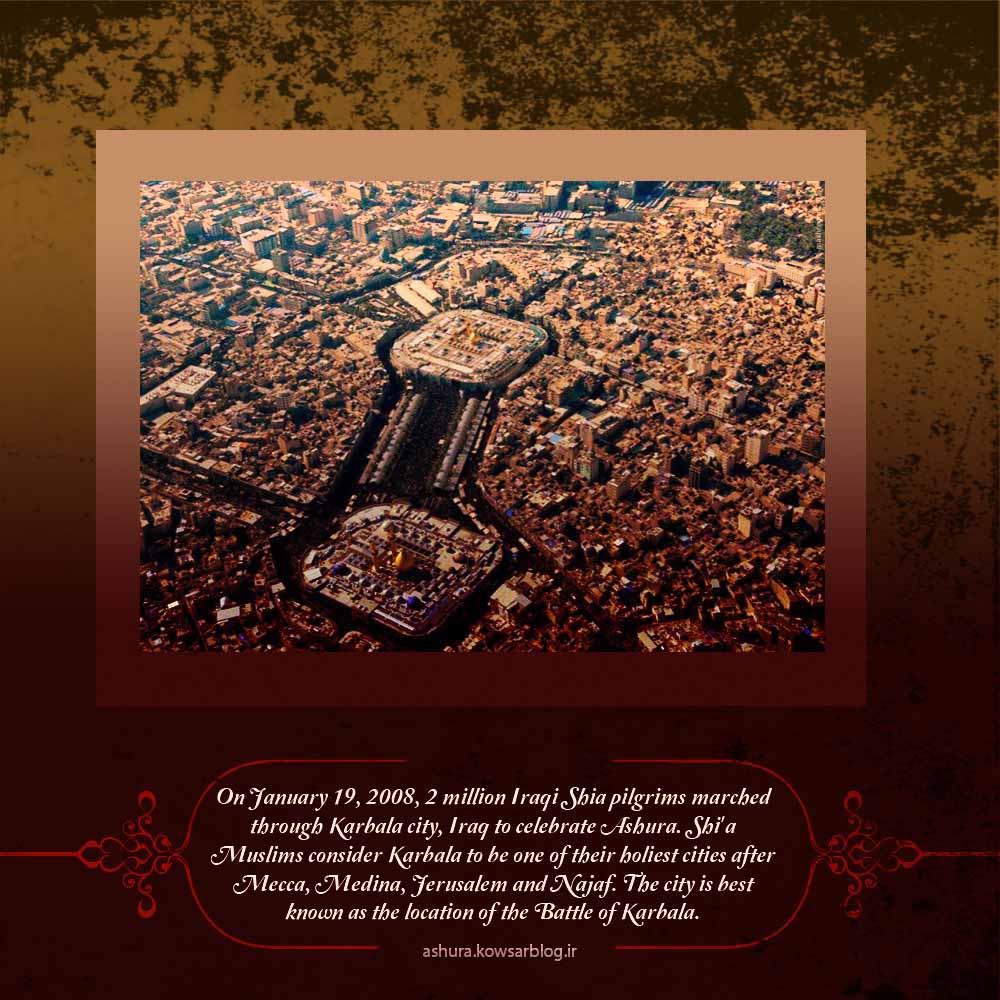
Ayatollah Khamenei
“Certainly, compared to other Muslim societies, one of the most important advantages of the Shiite society is the commemoration of Ashura Day.”
(6th June 1994)

.jpg)

Ayatollah Khamenei
“Certainly, compared to other Muslim societies, one of the most important advantages of the Shiite society is the commemoration of Ashura Day.”
(6th June 1994)
.jpg)
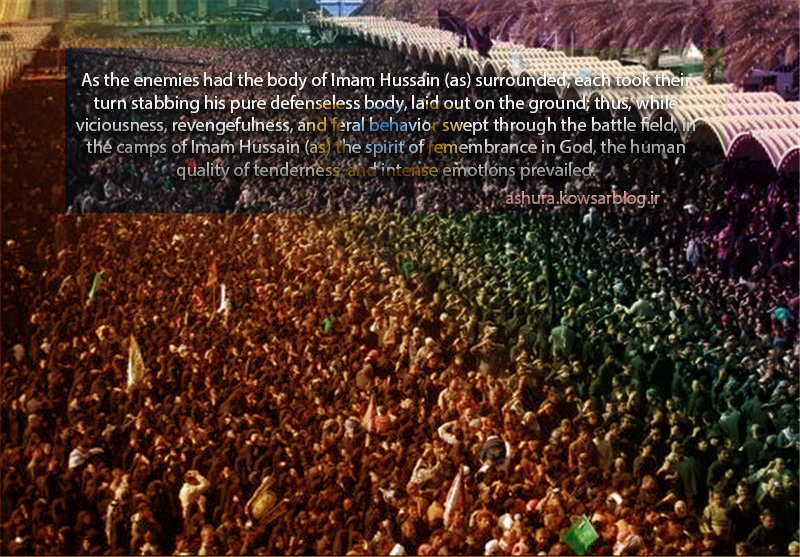
Ayatollah Khamenei
“The blessed commemoration of Imam Hussein (Peace Be upon Him) is one of the greatest blessings bestowed by God for our Shiite Society i.e. mourning for this Imam in Muharram.”
(6th June 1994)
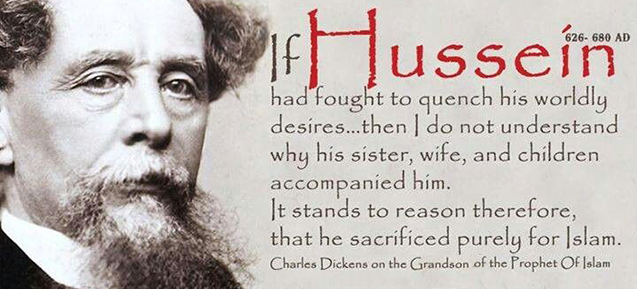
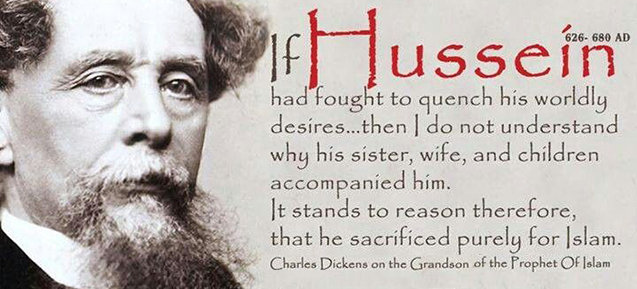
What was the course of Imam Hussain’s (A) revolution? What reasons prompted him to initiate such a great and unmatched upspring? Did he intended to overthrow the Yazid regime? Did he wish to end the Umayyid dynasty? These and such other questions keep cropping in the mind and everyone wants to know the satisfactory replies, specially the mourner of Imam Hussain (A) are more eager in this regard.
When Imam Hussain (A) was preparing to leave on his longest journey,he bid adieu to the grave of his grandfather, the Holy Prophet (S.AW). Then he wrote a legacy addressing his brother Mohammed Bin Hanafiyyah in which he explained the aims and objectives of his uprising. We are quoting an extract from the same legacy hereunder. He wrote thus:
“And surely the aim of my stand is not inspired by vain exultation and it is also not for the quest of kingdom, Neither it is to cause dissension and corruption nor it is to wrong anybody unjustly.”
These sentences of Imam Hussain (A) are sufficient enough to beat all the criticisms and accusation leveled against him by theenemies of Islam and the enemies of Imam Hussain (A).) Now the question arises if these were not the motives of Imam’s uprising than why did he took stand? What were the aims of his uprising? Thus continued Imam Hussain (A)
“The purpose of my stand is the reformation of my grandfather’s nation. I intend to enjoin goodness and forbid evil. I want to emulate my grandfather, the Holy Prophet (S)and my father Alt Bin Abu Talib (A). Whosoever accepts me by accepting the truth, then Allah is higher than the truth. And whosoever rejects me then I will bear patiently until Allah adjudges between me and them and He is the best Judge.”
In this legacy the chief of martyrs has explained three purposes for his stand:
1- The reformation of his grandfather’s nation
2- Enjoining Good and Forbidding Evil
3- Renewal and Revival of the tradition of the Holy Prophet (S) and Imam Ali (A)
These purposes are not different than each other rather these are complementary to each other because, nation can be reformed only by means of bidding good and forbidding evil. The tradition and path of the Holy Prophet (S) and Imam Ali (A) is goodness and anything other than that is evil. Some facts are stated by Imam Husain (A) in his other sermons and letters but in other words. When he reached Mecca he wrote a letter to the people of Basra thus;
“I invite you towards the Book of Allah and the Sunnah of the Holy Prophet (S) because indeed Sunnah has been mutilated and hereby is revived. Whoever will accept my words, then I will guide him towards the straight path". (Tarikhe-Tabari vol.7, pg.240)
In another letter to the people of Kufa he wrote thus:
“By God, Imam is the one who acts on the commands of the Book, deals with Justice, followed the truth and reserves his self for the pleasure of Allah.”
These words of Imam imply that only he can be an Imam who possesses these characteristics and the one who does not possess them cannot be an Imam. Hence Yazid Bin Muawiyah has had no right to the caliphate. When he reached at ‘Baiza’, a place near Karbala and was besieged by the contingent of Hur, then he addressed his men and the army of Hur in these words:
“The one who sees a tyrant King who is making unlawful as lawful, violating the pledge (of God), opposing the Sunnah of the Holy Prophet (S) ruling on the servant of Allah with sins and oppression. And by his words and actions does not oppose the King and does not strive to reform the circumstances, then it behooves Allah to hurl him into Hell along with the King.”
Then he continued about the Yazidi regime thus:
“They have shun the obedience of Allah and acted following Shaitan. They are instigating commotion and dismissing the divine laws. They are expending from the public exchequer for their selfish end and are changing the prohibited things to permissible thing.”
In the first sermon at Karbala he spoke thus:
“Can’t you see that the truth is not followed and the falsehood is not shunned.? In such circumstances a believer should desire to meet Allah. Surely I regard death as nothing but an honour and life with Oppressors as anything but disgrace.” Tarikhe-Tabari, vol.-7pg.300)
Nevertheless the unique and unparalleled revolution of Imam Hussain (A) which began in Rajab 60 AH. and apparently ended with the glorious martyrdom of Imam Hussain (A), his kith, kin and companions was not in vain. The purpose of this revolution was to revive and rejuvenate Islam (which was distorted and Yazidi regime wanted to annihilate it), and also to reform the nation of the Holy Prophet (S). Some of the Sunni Traditionalists have added a phrase of ‘and on the path of Khulafa Rashedeen’. It is an addition made in the reign of Umayyid dynasty because the term ‘Khulafa-Rashedeen’ was coined by the Historians and Scholastic Theologians of that time and this term was not in use at the time of Imam Hussain (A).
Moreover, Imam Hussain (A) was critical about the behavioural pattern of the caliphs, then how he could have desired to follow their paths ?
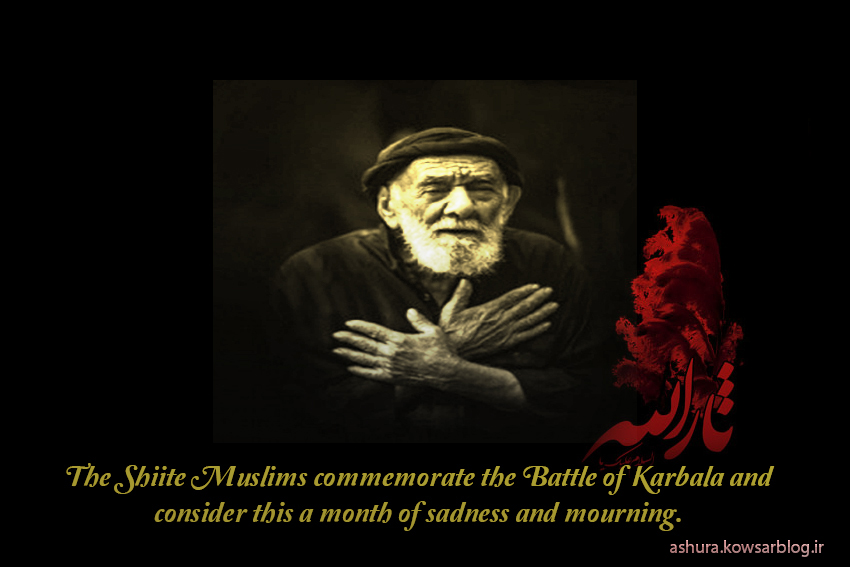

The Revolution’s Causes
The motives for revolution were numerous. Some were direct grievances of the general people while others were ideological. The following were the most apparent:
1. There were many defects and drawbacks but the most urgent one was the attempt to distort Islamic concepts and ideals. This aspect was of extreme importance and preoccupied the minds of responsible Muslims at the time. The fabrication of Hadith was all too common, which had a poisonous effect on the lives of Muslims. This, was giving the Umayyads for a while a free hand to carry out their inhuman deeds and policies. The mask of religion which they used to hide their un-Islamic conduct was extremely dangerous. In the long run, this could have changed Islamic concepts of ruling and inverted social ideals. Thus stripping off this mask and exposing the true Umayad’s picture was of utmost necessity.
2. The State’s structure was built on an un-Islamic basis. Quraish was born to rule, Arabs were second class citizens, and non-Arabs constituted the base of the society’s pyramid. That was the general social picture of, the Muslim world under the Umayyads dynasty. Freedom of thought and expression were denied, When one dared to express an opinion contrary to that of the Umayyad’s, prison became his home, his property was robbed, and oven his life was at stake.
3. The Umayyads considered the Muslim world to be their own property. The aims (Zakat) and other Islamic dues were collected, but no-one knows or can question where that money went. Large gifts and donations were given to few cruel governors and tribal chiefs in order to secure their allegiance. Large sums of money were wastefully spent on racing, gambling, wine-making, and buying slave women to entertain high-class people in power. Hence, the majority of Muslims were left near starvation level while the ruling group all enjoyed the social and material privileges.
4. The Muslims had apparently got used to the un-Islamic rule of the Umayyads as time passed by. Their resistance slackened and some people began adjusting themselves to the new conditions. Hence, the revolutionary spirit of Islam began to disappear gradually from Muslims’ lives and thoughts. Therefore, a new stimulant to their souls was necessary to activate their lives and try to restore, Islamic conduct to the society.
.jpg)
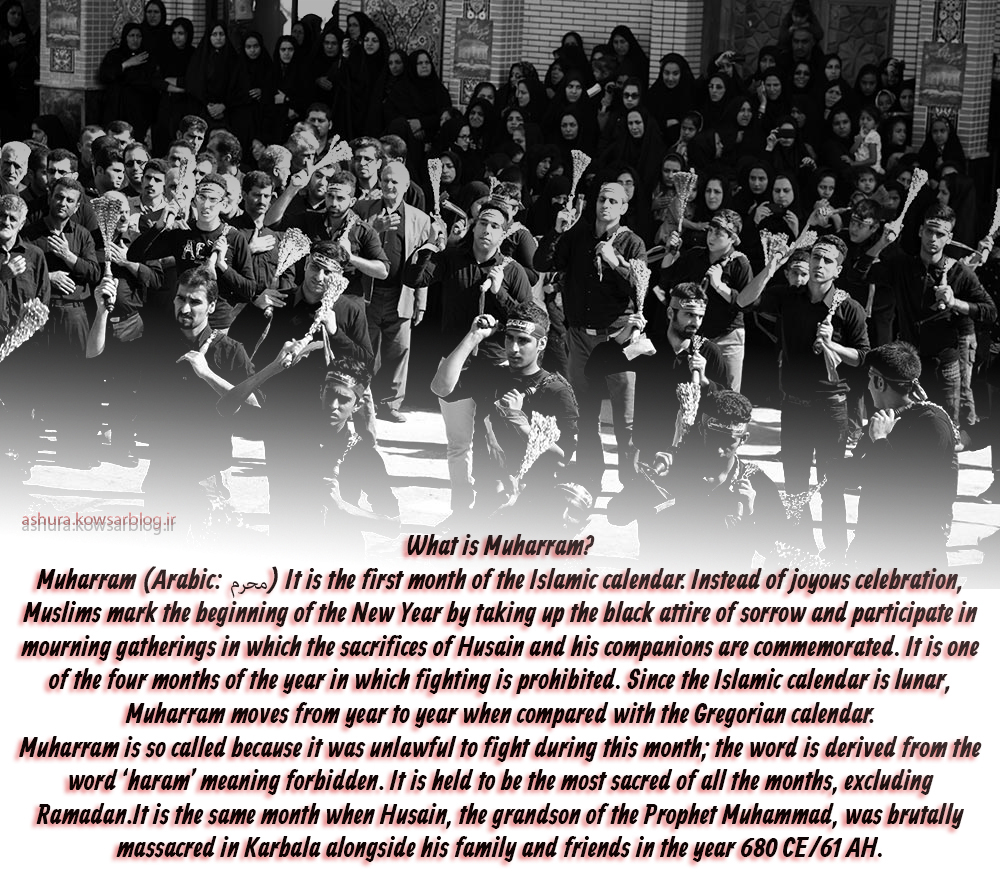
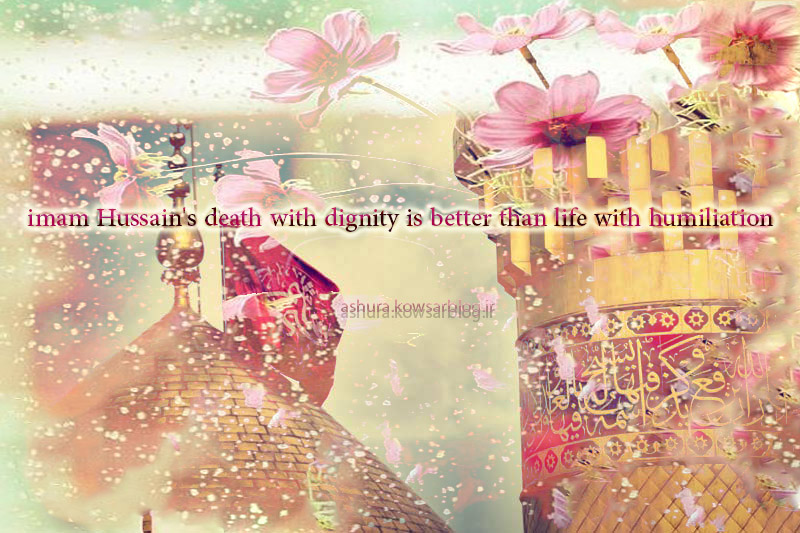
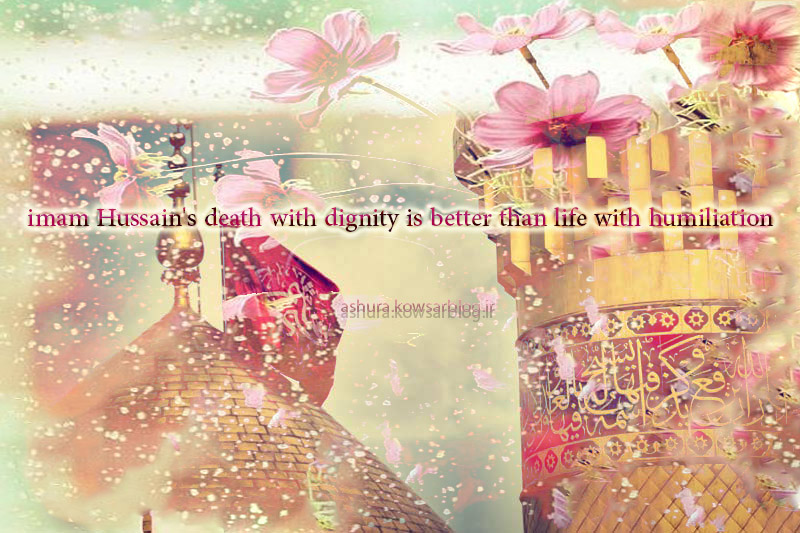
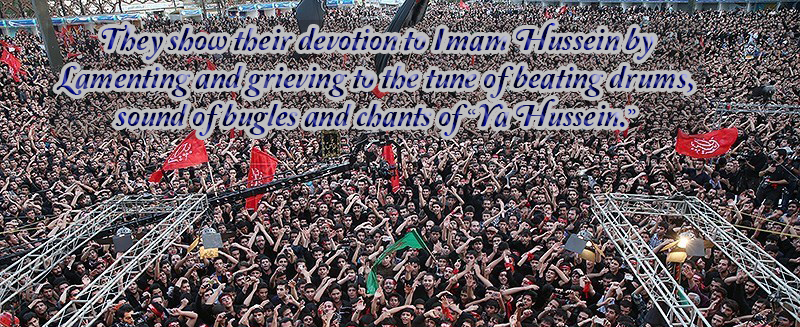
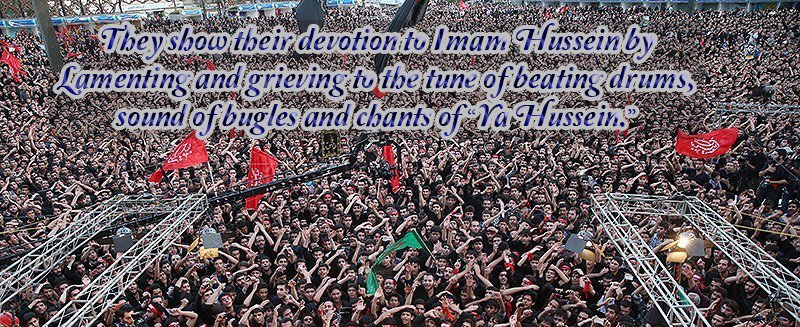
.jpg)
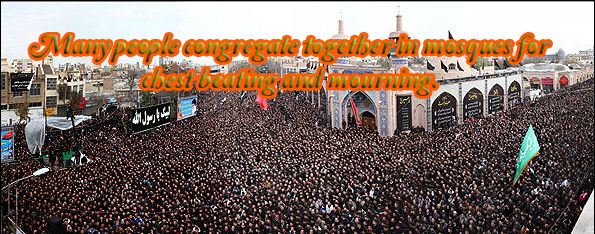
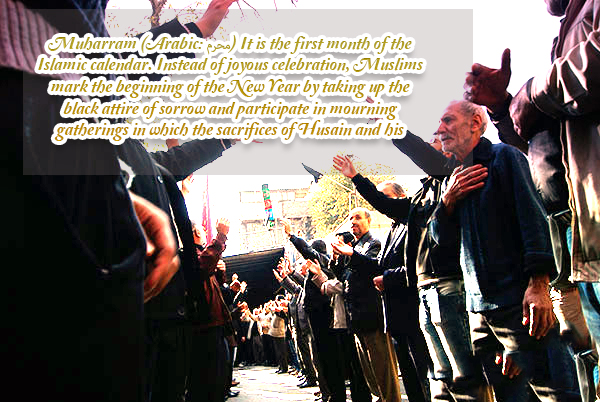
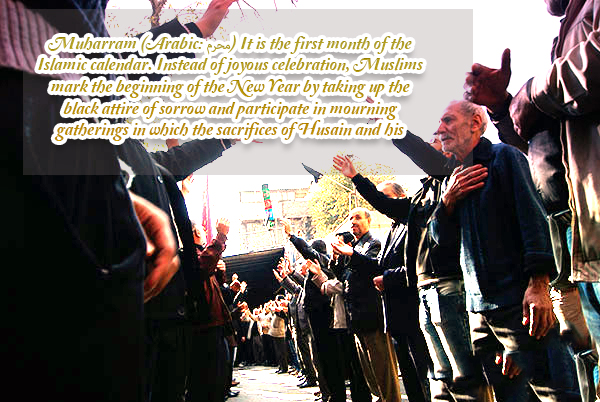

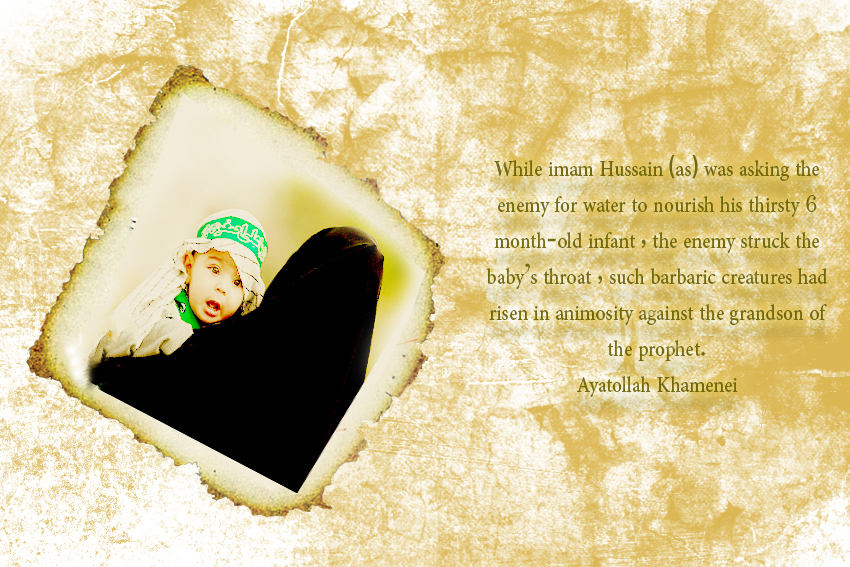
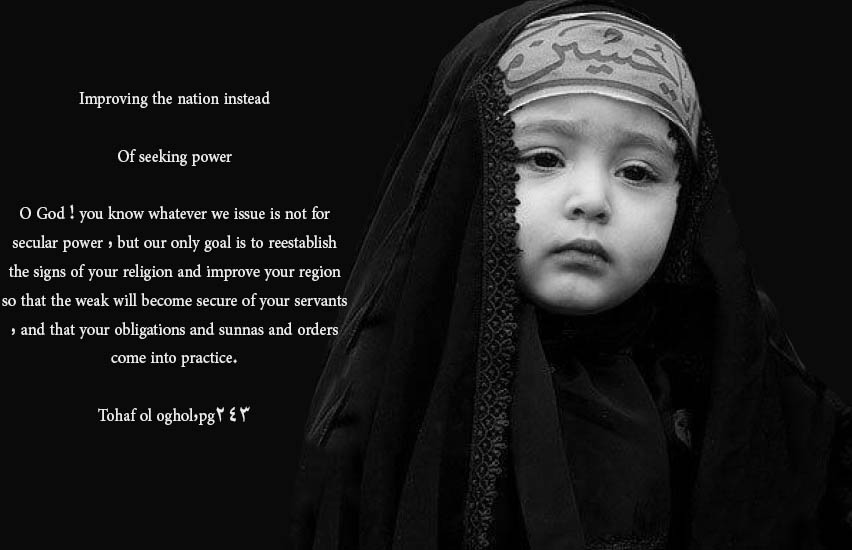

ashura

These days are days related to Hussein ibn Ali (greetings be upon him). They are days of enthusiasm and historical excitement for the Islamic Ummah. They are not particular to Shias. Non-Shias too consider the movement of Hussein ibn Ali (God’s greetings be upon him) as a great, magnificent and instructive movement and model for nations. I am speaking about those who are familiar with this movement. I am not speaking about those people who are not familiar with it. As for our people, one of their sources of pride is familiarity with the Master of Martyrs and Karbala. They are familiar with the important matters that occurred after or during Ashura.
These days are days of Zaynab al-Kubra (God’s greetings be upon her). Zaynab al-Kubra (God’s greetings be upon her) is the same person who kept the event of Ashura alive. She prevented it from being consigned to oblivion or becoming outdated with the political deceptions of the ruling system of those days. It was Zaynab al-Kubra (God’s greetings be upon her) who kept the event alive. Therefore, these are important days.
The historical period that we are in is an important period. The people of Iran are establishing their dignity and formulating their main roadmap for progress towards ideals. Therefore, the youth’s awareness is important. Their acumen about the current conditions is important and this gathering is an opportunity for speaking – to some extent – about such matters.

As the enemies had the body of Imam Hussain (as) surrounded, each took their turn stabbing his pure defenseless body, laid out on the ground; thus, while viciousness, revengefulness, and feral behavior swept through the battle field, in the camps of Imam Hussain (as) the spirit of remembrance in God, the human quality of tenderness, and intense emotions prevailed.
All women and children—no one but women and children were left in the camps, with the exception of the only surviving male Ali Ibn Hussain (as) who was ill—were worried about Hussain Ibn Ali (as) and what would transpire next.
They came out of their tents, and proceeded to the area where they believed Hussain Ibn Ali’s (as) body was seized; it has been narrated that the women departed from the camp. You have probably seen or heard how Arab women weep and mourn: it is still common among Arab women to mourn painfully upon the death of their loved ones; they beat their own faces, and pull at their hair; they mourn in such an intense manner. Well, these women had lost a loved one, a man like Hussain Ibn Ali (as).
Hazrat Zeinab was heading the women towards the sight of his martyrdom. When she arrived, she spotted the body of her beloved brother on the blistering grounds of Karbala. Instead of revealing some sort of reaction, or grievance, she went to the corpse of her beloved Hussain (as), and called on her grandfather (pbuh). She said, “O’ the Messenger of God, peace be upon you! Take a look at your Hussain who is covered in blood, with his body hacked up.” O’ my dear grandfather! O’ Great Prophet, look towards the hot desert of Karbala. This is your Hussain who is now covered in blood and dust.
Then, as it has been narrated, Zeinab (as) reached her hands beneath the body of Hussain Ibn Ali (as) and called out, “O’ God! Please accept this sacrifice from the progeny of Muhammad (saw)!”
Ayatollah Khamenei, 9/27/1985

Of course this is easier said than done. What Imam Hussein (a.s.) did was an extraordinary feat. That is to say, the dimensions of his action are far more than what we estimate. We usually ignore aspects and details. Once I spoke about Imam Hussein’s (a.s.) patience. His patience was not limited to enduring thirst or seeing his companions being killed. These things are relatively easy to tolerate. The kind of patience that is difficult to practice is to listen to influential, aware and respectable people who keep creating doubts and telling you that what you are doing is dangerous and wrong. Who did those things? People like Abdullah Ja’far, Abdullah Zubair and Abdullah Abbas. These prominent figures of that time were constantly telling Imam Hussein (a.s.) not to do what he was doing. If it were somebody else, somebody who did not have that determination and stable character, he would have thought, “Well, I did my duty. These people are talking like this and the world is acting like that, so I should just say what I am supposed to say and do nothing else.” A person who decides to stand up against such statements, such temptations, such doubts and such efforts to bend sharia and is not dissuaded from continuing his path - such a person is the one who can give rise to such a great transformation. In this regard our magnanimous Imam (r.a.) was similar to the Lord of the Martyrs. I explained this in another meeting and I do not want to go into the details now. This was how Imam Hussein (a.s.) acted as a guardian.
Statements made during an address to members of IRGC; July 4, 2011

ی
What is Muharram?
Muharram (Arabic: محرم) It is the first month of the Islamic calendar. Instead of joyous celebration, Muslims mark the beginning of the New Year by taking up the black attire of sorrow and participate in mourning gatherings in which the sacrifices of Husain and his companions are commemorated. It is one of the four months of the year in which fighting is prohibited. Since the Islamic calendar is lunar, Muharram moves from year to year when compared with the Gregorian calendar.
Muharram is so called because it was unlawful to fight during this month; the word is derived from the word ‘haram’ meaning forbidden. It is held to be the most sacred of all the months, excluding Ramadan.It is the same month when Husayn, the grandson of the Prophet Muhammad, was brutally massacred in Karbala alongside his family and friends in the year 680 CE/61 AH.
محرم اولین ماه از تقویم اسلامی است. مسلمانان به جای مراسم شادی، سال جدید را با پوشیدن لباس سیاه که حاکی از غم و اندوه است آغاز می کنند و در مراسم عزاداری که در آن فداکاری امام حسین و یارانش یادآوری می شود، شرکت می کنند..این ماه یکی از چهار ماه حرام است که در آن جنگ حرام است.از آنجاییکه تقویم اسلامی قمری است، محرم در مقایسه با تقویم میلادی سال به سال در حرکت است.
محرم ماه شناخته شده ای است چون در این ماه جنگ و خونریزی حرام است. واژه محرم از کلمه “حرام” گرفته شده است که به معنای ممنوع می باشد .بعد از ماه رمضان ، محرم از مقدس ترین ماه هاست .محرم ماهی است که امام حسین نوه پیامبر اسلام حضرت محمد به همراه خانواده و دوستانش در سال شصت و یک هجری در کربلا ، بیرحمانه به شهادت رسیدند .
Their martyrdom is a sad day for all Muslims, especially the Shi’a, who hold mourning ceremonies to recall the righteous virtues for which the valiant martyrs stood and the grave calamities that they thus had to bear. The commemoration of this brutal massacre (Battle of Karbala) begins on the first day of Muharram and reaches its climax on the 10th of Muharram, the day of the battle, known as Ashurah and continues for 40 days or 69 days.
شهادت آنها روز غم انگیزی برای مسلمانان به ویژه شیعیان است که مراسم عزاداری یادآوری فداکاری و تقوای مردان شجاعی است که مقاومت کردند و مصائب بزرگی را تحمل کردند. بزرگداشت واقعه کربلا، از اول محرم شروع می شود و در روزدهم به اوج خود می رسد که “عاشورا” –روزی که جنگ رخ می دهد- نام دارد به اوج خود می رسد و سپس به مدت چهل یا شصت ونه روز ادامه پیدا می کند.
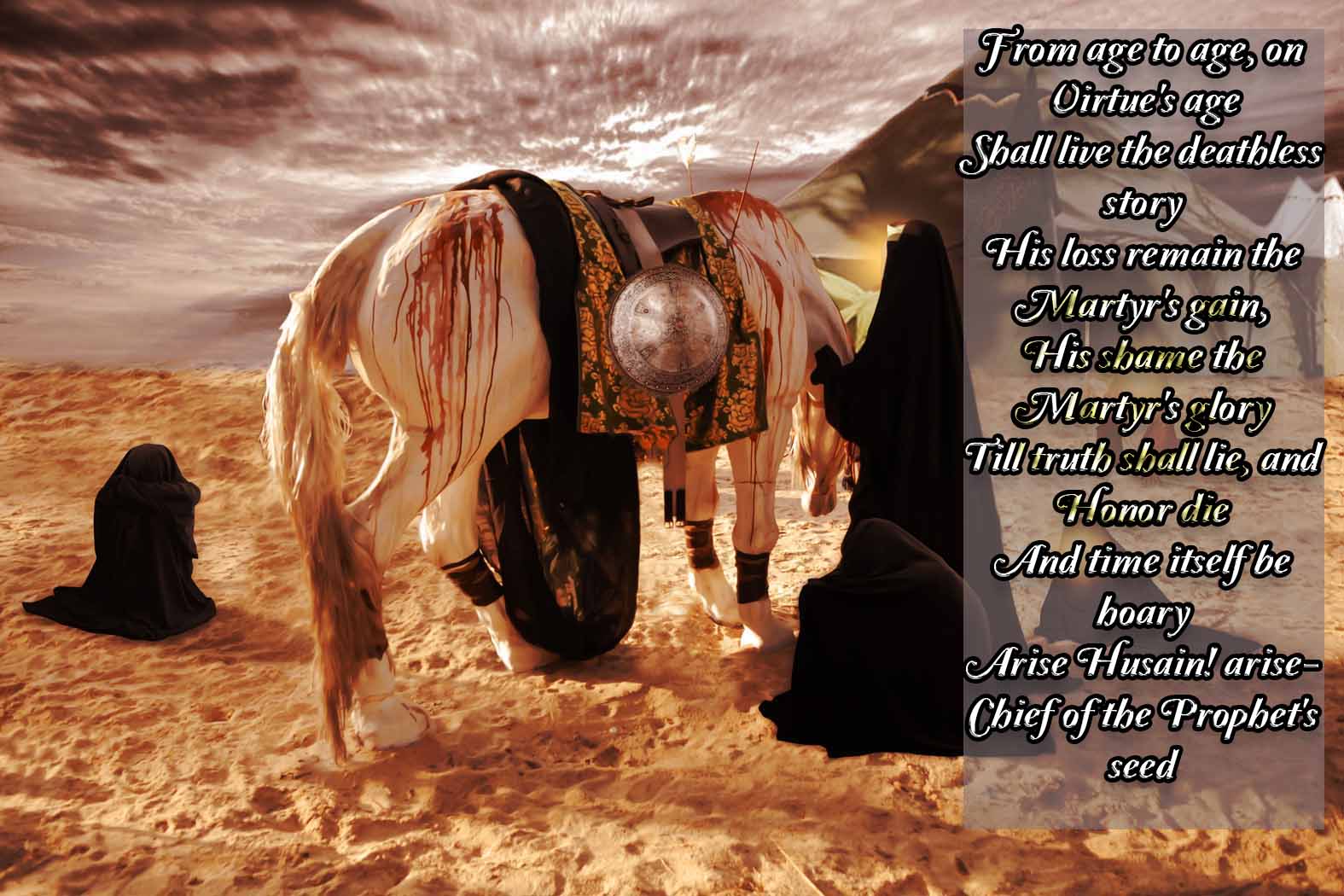
The concept of guardianship was embodied by Imam Hussein (a.s.) with all its dimensions and with all the necessary and possible means. This is not to say that others did not do such a thing or did not want to do such a thing, rather it means that this movement was fully realized in the behavior of the Lord of the Martyrs (a.s.) during his ten-year imamate. One can clearly notice in his lifestyle all the methods that could have been used by a descendant of the Holy Prophet (s.w.a.) to preserve the great legacy of Islam which has been passed down by the Holy Prophet (s.w.a.) and his father as well as their genuine followers. We can clearly see everything in the lifestyle of the Lord of the Martyrs (a.s.) - everything ranging from clarification, to forewarning, to promotion of Islam, to provoking the conscience of prominent figures of his time during a sermon in Mina. All these things are tangible in the lifestyle of the Lord of the Martyrs (a.s.). Later on he stood up against a great deviation and laid down his life. Imam Hussein (a.s.) was aware of the consequences of his movement. He was an infallible Imam. Infallible Imams’ extensive knowledge and insight are beyond our heads. Imam Hussein (a.s.) revolted to set a role model and he refused to surrender. He asked people to help him and when a group of people from Kufa expressed their willingness to accompany him on this path, Imam Hussein (a.s.) accepted their offer and moved towards Kufa and he did not give up in the middle of the way. Imam Hussein (a.s.) stood up against the deviated current of his time, which was extremely dangerous. And this became a lesson and Imam Hussein (a.s.) himself makes the same point. That is to say, he backed up his action with the order of Islam. He said that his duty was what he was doing. He said that he had to express his opposition, no matter what the consequences were. He said, “It is good if my destiny is a victory and if my destiny is martyrdom, so much the better.” This was how Imam Hussein (a.s.) acted.
This was a perfect instance of self-sacrifice and it safeguarded Islam. This move preserved Islam. This move institutionalized values in society. If Imam Hussein (a.s.) had not accepted this danger, if he had not made a move, if he had not taken action, if his blood had not been shed, if those great tragedies had not happened to the shrine of the Holy Prophet (s.w.a.), to Imam Ali’s (a.s.) daughter and to the Holy Prophet’s (s.w.a.) descendents, this event would not have gone down in history. The event that could have prevented that great deviation had to shock people and history as much as the deviation did. This shows Imam Hussein’s (a.s.) self-sacrifice.
Of course this is easier said than done. What Imam Hussein (a.s.) did was an extraordinary feat. That is to say, the dimensions of his action are far more than what we estimate. We usually ignore aspects and details. Once I spoke about Imam Hussein’s (a.s.) patience. His patience was not limited to enduring thirst or seeing his companions being killed. These things are relatively easy to tolerate. The kind of patience that is difficult to practice is to listen to influential, aware and respectable people who keep creating doubts and telling you that what you are doing is dangerous and wrong. Who did those things? People like Abdullah Ja’far, Abdullah Zubair and Abdullah Abbas. These prominent figures of that time were constantly telling Imam Hussein (a.s.) not to do what he was doing. If it were somebody else, somebody who did not have that determination and stable character, he would have thought, “Well, I did my duty. These people are talking like this and the world is acting like that, so I should just say what I am supposed to say and do nothing else.” A person who decides to stand up against such statements, such temptations, such doubts and such efforts to bend sharia and is not dissuaded from continuing his path - such a person is the one who can give rise to such a great transformation. In this regard our magnanimous Imam (r.a.) was similar to the Lord of the Martyrs. I explained this in another meeting and I do not want to go into the details now. This was how Imam Hussein (a.s.) acted as a guardian.
Statements made during an address to members of IRGC; July 4, 2011.


Muharram is the first month of the Islamic calendar.
The Shiite Muslims commemorate the Battle of Karbala and consider this a month of sadness and mourning.
Can you tell me a little about Ashura?
Ashura is the day Husain Ibn Ali , the grandson of the prophet Muhammad (PBUH & HP) , was martyred along with his family members and friends in the Battle of Karbala.
This month is period of intense grief and mourning.
Clergymen give sermons with themes of Hussein’s personality and position in Islam, and the history of his uprising.
The clergymen retell the Battle of Karbala and speak about the pain and sorrow endured by Hussein and his family.
Many people congregate together in mosques for chest beating and mourning.
They show their devotion to Imam Hussein by Lamenting and grieving to the tune of beating drums, sound of bugles and chants of “Ya Hussein.”
Some people sacrifice a sheep in Ashura.


While imam Hussain (as) was asking the enemy for water to nourish his thirsty 6 month-old infant , the enemy struck the baby’s throat , such barbaric creatures had risen in animosity against the grandson of the prophet.
Ayatollah KhameneiWhile imam Hussain (as) was asking the enemy for water to nourish his thirsty 6 month-old infant , the enemy struck the baby’s throat , such barbaric creatures had risen in animosity against the grandson of the prophet.
Ayatollah Khamenei